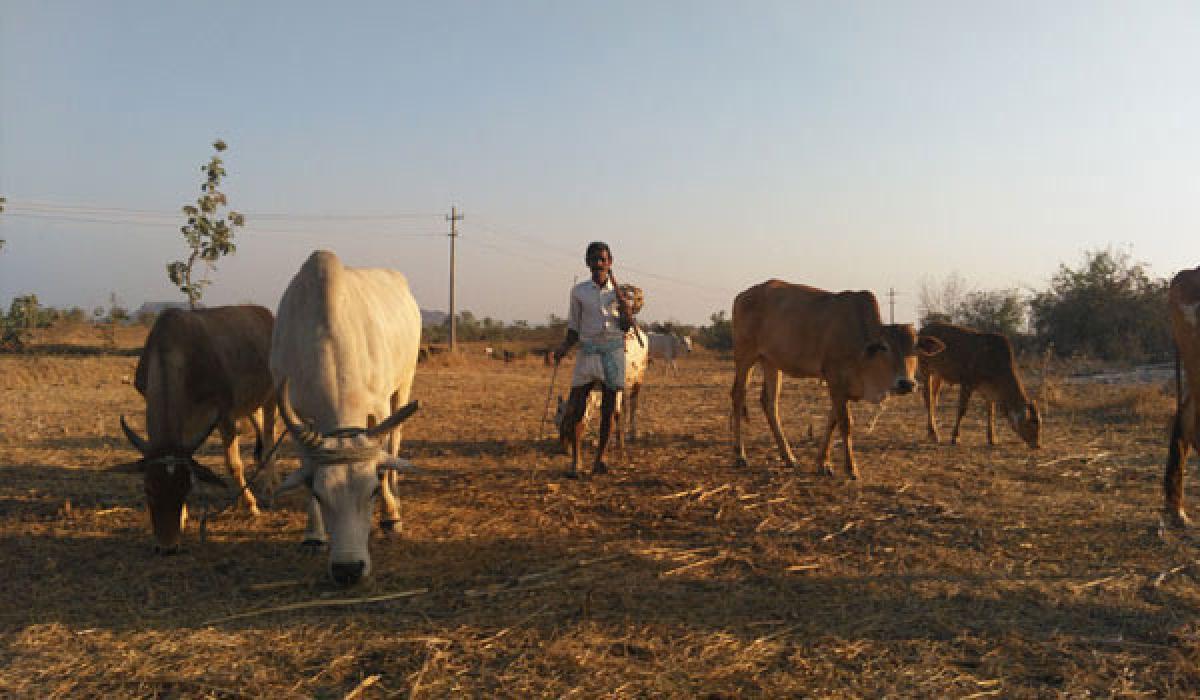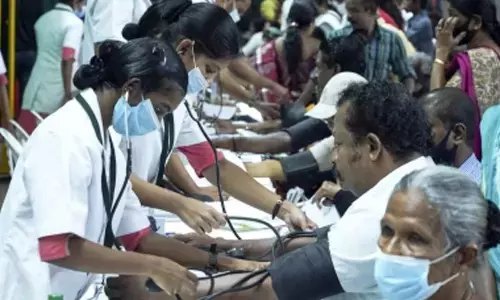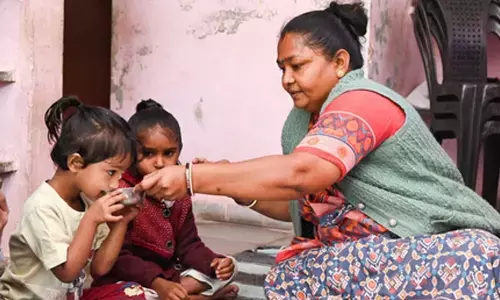Anantapur facing severe drought, water shortage

A 7-member team comprising of civil society representatives including members of NGOs and people’s organisations which toured the district recently to study drought conditions including acute drinking water shortage found miserable drought conditions.
Anantapur: A 7-member team comprising of civil society representatives including members of NGOs and people’s organisations which toured the district recently to study drought conditions including acute drinking water shortage found miserable drought conditions.
Highlights:
- Fact finding team says at least 4.87 lakh people migrated to other districts
- Animals are sold at a throw away price with fodder shortage
The fact finding team consisted of Basha and Sashanka Mouli of Human Rights Forum, Chandrasekhar and Sesha Reddy (AP Rythu Sangam), Bhanuja (AP Rythu Swarajya Vedika), Kavitha Kuruganti (ASHA-Kisan Swaraj network) and Padmavathi (Mahila Samakhya). The team visited villages in Anantapur Rural, Raptadu, Obula Devuni Cheruvu (ODC), Mudigubba and Kadiri mandals. The study revealed rainfall was just 284 mm in 2016-17 when compared to 722.4 mm in 2010-11. At least 42% of the agricultural borewells in the district have run out of water and dried up by April 2017.
The groundwater levels in the district have fallen to 70-90 meters in many places. The number of milch animals in the district has declined by 50%, to around 8.22 lakh animals. An estimated 38 lakh sheep and 8 lakh goats have been taken to distant places for grazing. Migration of at least 4.87 lakh people to other districts occurred, the team claimed. In 68% of the villages in the district, severe drinking water shortage is reported.
Crop loss estimates in the district are the highest ever in Kharif 2016, at Rs 4,000 crore. The gravity of the situation and the acute nature of the current drought could be gauged firsthand by us stated Bhanuja, a member of the team. Non-availability of drinking water as well as water for other household purposes was the common complaint of the people in villages like Raminepalli. The crisis was also acute in Kareddipalli Tanda.
The water crisis in Kodimi village was of a different kind though water quantities and the number of working borewells is not a problem here, the quality of water was a serious issue. Villagers contend that their groundwater is highly polluted by a neighbouring veterinary pharmaceutical plant which makes the water unprotected. The entire village depends on purchased water for its drinking needs. Households were seen to spend at least Rs 15 to Rs 20 per day on an average for drinking water being supplied by various commercial players.
All livestock owning households are purchasing fodder at the cost of at least Rs 5000- to Rs 7500 per month. A tractor load of paddy hay costs around Rs 10,000 and groundnut fodder costs Rs 15000. This is not adequate for one milch animal for 2 months, per cow or buffalo, except those rare households which managed to harvest a Rabi crop because of irrigation availability.
This is an unaffordable investment in many ways for many families. However, in the absence of any fodder cultivation taken up by the government village-wise, or supply of fodder from elsewhere, this is something that families are spending their limited resources on, including by borrowing money from some source or the other. The fact finding team stated that there is serious shortage of fodder.
Herds were being taken 5 km away from their households where water sources are found. There are instances of deaths of milch animals as well as small ruminants like goats and sheep due to fodder shortage, summer heat and drinking water crisis. For a death of a milch animal, a household incurs a loss of around Rs 30,000. The fact finding team came across reported instances of drought-related deaths of milch animals in at least 6 cases.
Further, there is a high level of distress sale of animals by a large number of families at throw-away prices because owners are unable to provide fodder for the animals any more. Animals purchased for around Rs 30,000 being sold at such low prices as Rs 5,500. Large scale migration has been reported in the places visited by the team including 20 families in Kurugunta, 15 families in Raminepalli, 40 families in NSP Kottala, 35 families in Kareddipalli and 8 families in Balijapalli.
By Ravi P Benjamin
















